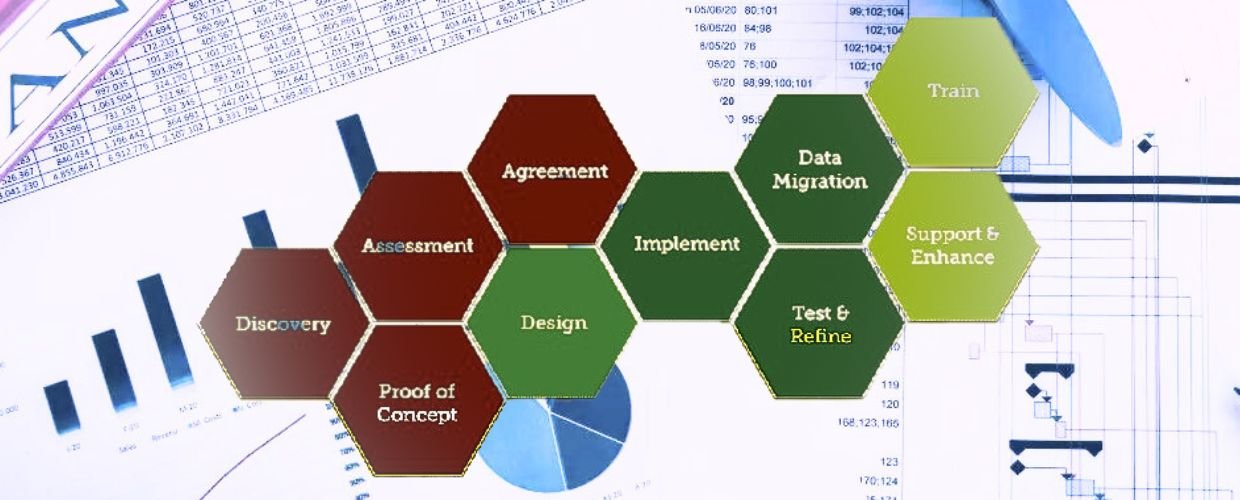Project management is pivotal in achieving successful project outcomes, and enterprise Resource Planning (ERP) software has revolutionized project management. This article will explore how ERP empowers project managers to drive successful deliveries by streamlining project planning and scheduling, optimizing project processes and resource allocation, enhancing communication and collaboration, and ensuring project transparency and control.
ERP for Project Management to Planning and Scheduling
Effective project planning and scheduling are critical for project success. An ERP for Project Management can facilitate project scheduling and resource-leveling. By leveraging the features and capabilities of ERP software, businesses can enhance their project planning and scheduling efforts, leading to improved efficiency, productivity, and successful project deliveries.
Centralized Task Management
One of the key ways ERP software streamlines project planning and scheduling is through centralized task management. ERP for project management helps managers to create a centralized repository of all project tasks, allowing for better organization and visibility. This centralization ensures that all team members have access to up-to-date task information, reducing the chances of miscommunication or missed deadlines. An ERP for Project Management can assist with change management and project scope control.
Efficient Resource Allocation
ERP software enables efficient resource allocation, a crucial project planning and scheduling aspect. Project managers can assign resources more effectively by comprehensively viewing available resources, their skills, and their current workload. ERP for project management provides real-time resource availability data, allowing managers to make informed decisions and avoid over or underutilizing resources.
Real-time Scheduling and Timeline Management
ERP software offers real-time scheduling and timeline management capabilities, making project planning and scheduling more efficient. Project managers can easily create project schedules, define task dependencies, and set milestones using the ERP system. Team members can track progress, identify potential delays, and make adjustments to keep the project on track.
Automated Reminders and Notifications
ERP software automates reminders and notifications, improving project planning and scheduling. The system can send automated reminders to team members for upcoming tasks or approaching deadlines, which helps keep them accountable and ensures that tasks are completed on time. Furthermore, ERP software can send notifications when changes are made to project schedules, ensuring that team members are aware of any updates or adjustments.
Optimizing Project Processes and Resource Allocation
Optimizing project processes and resource allocation is vital for achieving successful project outcomes. Implementing an ERP for Project Management can streamline processes and improve efficiency. It is key in optimizing project processes and resource allocation, enabling businesses to maximize productivity, minimize costs, and drive successful project deliveries.
Streamlining Project Processes
ERP software provides tools and functionalities to streamline project processes, ensuring smooth execution. ERP software eliminates silos and enhances collaboration among team members by centralizing project-related information, documents, and communication channels. This streamlining of project processes improves communication, reduces duplication of effort, and increases overall project efficiency. An ERP for Project Management can help with continuous improvement and process optimization.
Enhancing Resource Allocation
Optimal resource allocation is crucial for project success, and ERP for Project Management can help with resource allocation and capacity planning. ERP systems assist in making informed decisions by providing a clear view of resource availability, skills, and workload, preventing over- or underutilization, and improving overall project efficiency. An ERP for Project Management can provide real-time visibility into project performance.
Automating Task Assignments and Tracking
ERP software automates task assignment and tracking contributing to optimized project processes. With an ERP for Project Management, you can easily track project progress and timelines. Automated notifications and reminders keep team members informed about task deadlines and updates, ensuring the timely completion of tasks. Additionally, ERP software provides real-time tracking of task progress, enabling project managers to monitor project milestones and take necessary actions to keep the project on schedule.
Data-Driven Decision Making
ERP software empowers organizations to make data-driven decisions by providing real-time insights into project processes and resource allocation. ERP systems generate actionable data on project performance, resource utilization, and cost management through comprehensive reporting and analytics capabilities. This data allows project managers to identify bottlenecks, analyze trends, and optimize project processes and resource allocation strategies accordingly. Data-driven decision-making enhances project efficiency, reduces risks, and increases the chances of successful project deliveries.
Effective communication and collaboration
A key benefit of an ERP for Project Management is improved communication and collaboration among team members. ERP software enhances communication and fosters collaboration by providing centralized communication channels, document-sharing capabilities, and real-time collaboration features, improving project outcomes.
Centralized Communication Channels
ERP software offers centralized communication channels that unite project teams in one platform, eliminating the need for scattered communication across multiple tools and channels, reducing confusion, and improving overall communication efficiency. With ERP for project management, team members have a multitude of options for real-time communication, such as instant messaging, discussion boards, and chat groups. It allows them to easily share ideas and address any queries related to the project.
Document Sharing and Collaboration
Effective collaboration requires seamless document sharing and version control. Storing all project-related documents in one easily accessible location using ERP software can help team members collaborate and share files more effectively; this ensures everyone has access to the latest information, minimizing the risk of miscommunication and ultimately leading to more efficient and accurate project completion.
Real-Time Collaboration Features
ERP software incorporates real-time collaboration features that facilitate synchronous collaboration among team members. These features enable simultaneous editing and commenting on shared documents, fostering active participation and real-time decision-making. With features like screen sharing and virtual meetings, team members can collaborate effectively, regardless of physical location. Real-time collaboration capabilities enhance team dynamics, improve productivity, and expedite project progress.
Mobile Accessibility
In the mobile-driven world, remote work and on-the-go collaboration are becoming increasingly prevalent. ERP software often provides mobile accessibility, allowing team members to access project information, communicate, and collaborate from their mobile devices. This mobile access enables seamless collaboration, even when team members are away from their desks, promoting flexibility and productivity.
Ensuring Project Transparency and Control
Project transparency and control are vital for the successful execution of projects. ERP software ensures project transparency and control by providing centralized data, tracking capabilities, and real-time insights. By using an ERP for Project Management, you can reduce the risk of project failures. With ERP, organizations can maintain a clear overview of projects, exercise control over project elements, and drive successful project outcomes. An ERP for Project Management can assist with issue tracking and resolution.
Centralized Project Data and Documentation
ERP software centralizes project data and documentation, ensuring easy access and improved transparency. All project-related information, including documents, communication logs, and progress reports, is stored in a centralized location, eliminating manual tracking and searching through multiple sources and improving efficiency and transparency. Project stakeholders can access the latest information, track changes, and comprehensively view the project’s status, enhancing transparency and decision-making.
Real-time Tracking and Reporting
With an ERP for Project Management, you can easily track project milestones and deliverables. Project managers can track key real-time metrics such as task completion, resource utilization, and budget allocation. It identifies bottlenecks or deviations from the plan early, facilitating timely corrective actions. Real-time reporting also helps stakeholders stay informed about project status, ensuring transparency and facilitating effective communication.
Budget Management and Financial Control
With an ERP for Project Management, you can better manage project budgets and costs. It allows project managers to set and monitor project budgets, track expenses, and manage financial resources. With integrated financial modules, ERP systems provide accurate financial data, ensuring control over project costs. Budget deviations, expense approvals, and financial forecasts can be easily monitored, enabling organizations to maintain financial control and make informed decisions to mitigate risks.
Role-based Access and Security
ERP software offers role-based access and security features to control project data and ensure data privacy. Team members can be assigned specific roles and access levels, ensuring only authorized individuals can view or modify sensitive project information, which enhances data security, prevents unauthorized access, and maintains project control. Role-based access also supports accountability and auditability, fostering transparency and trust within the project team. By using an ERP for Project Management, you can ensure project compliance with regulations and standards.
Conclusion
Effective project management is essential for successful project deliveries in today’s competitive business landscape. By leveraging the capabilities of ERP software, project managers can achieve better project outcomes, meet deadlines, stay within budget, and exceed client expectations. Implementing ERP for project management is a strategic move organizations can make to stay ahead of the competition and deliver projects with excellence.



